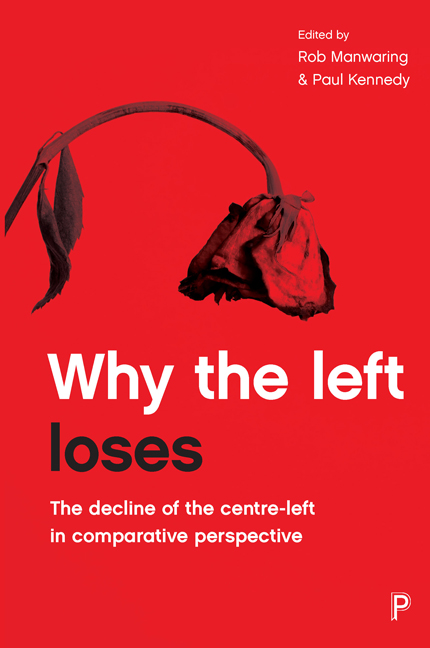Book contents
thirteen - The dilemmas of social democracy
Published online by Cambridge University Press: 08 April 2022
Summary
Introduction
Any serious political movement faces a range of strategic, tactical and ideational dilemmas. These pressures range from electoral concerns to wider issues of existential identity. In these respects, social democracy is no different. Indeed, there is a strong strain throughout the social democracy literature that highlights the range of dilemmas facing the movement. These include Przeworski and Sprague's (1986) seminal work on the dilemma of electoral support – what happens to social democratic parties as they build alliances between the working and middle classes. In the wider sweep of the history of socialism, there was a long-standing dilemma about how to reconcile (or not) with Marxism (for example, Bernstein's revisionism), and how to respond to the social changes and emergence of identity politics in the 1960s (Sassoon, 2013). Perhaps the most recent set of dilemmas was posed by Giddens (1998) in his synthesis of the ‘Third Way’ (for a critique, see Przeworski, 2001).
In this concluding chapter, we summarise some of the key issues that arise from the case chapters. Rather than offer a static comparison of the individual cases, we reframe the wider issues through a series of ongoing dilemmas for the centre-left, which straddle the ideational, institutional and individual framework set out in this book. Here, we suggest that a renewal of the centre-left might well rely on a more sustained effort to address the following issues:
• re-balancing principles and pragmatism
• responding to the changing electoral sociology
• meeting the populist challenge
• responding to structural changes in the party system, and new forms of participation
• redesigning its political economy.
We don't claim that this is an exhaustive or definitive list of dilemmas, but, on our reading, they remain some of the most pressing for the family of social democratic and labour parties.
Principles vs pragmatism
As we have seen in the preceding pages, no political family suffered more from the global financial crisis (GFC) than social democracy. The economic downturn exacerbated the tension between principles and pragmatism that affects all political parties, but which is of particular resonance for those on the centre-left. Pragmatism, as encapsulated by Tony Blair's line, ‘what matters is what works’, retained its credibility in the context of the long economic boom that stretched from the mid-1990s to the collapse of Lehman Brothers in 2008.
- Type
- Chapter
- Information
- Why the Left LosesThe Decline of the Centre-Left in Comparative Perspective, pp. 203 - 218Publisher: Bristol University PressPrint publication year: 2017

